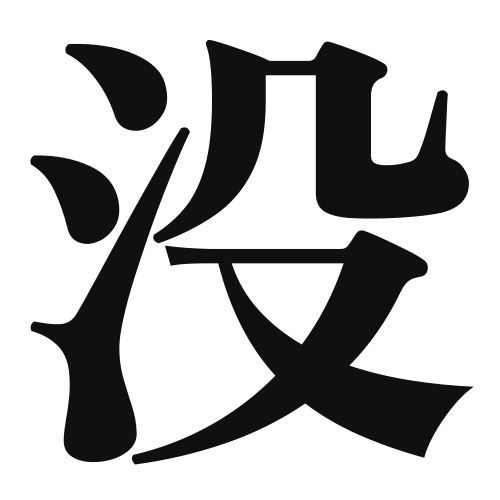1. Overview of Meaning
The kanji “没” (ぼつ, botsu) primarily means “to sink,” “to disappear,” or “to die.” It conveys a sense of something being lost or no longer existing.
2. Formation and Radical
Formation of the Kanji: The kanji “没” is a phonetic-ideographic character (形声文字). It combines the radical for water (氵) with the phonetic component “勿” (motsu), which contributes to its meaning related to disappearance or sinking.
Radical: The radical of “没” is氵, which is associated with water, emphasizing the idea of something sinking or being submerged.
3. Examples of Usage
Common Words and Phrases:
- 没頭 (ぼっとう, bottou) – engrossed, absorbed
- 没落 (ぼつらく, botsuraku) – decline, downfall
Example Sentences in Daily Conversation:
- 彼は仕事に没頭している。 (かれはしごとにぼっとうしている。) – He is absorbed in his work.
- その会社は最近没落した。 (そのかいしゃはさいきんぼつらくした。) – That company has recently declined.
4. Synonyms and Antonyms
Similar Kanji:
- 消 (しょう, shou) – to extinguish, to disappear. While both “没” and “消” convey disappearance, “消” often implies a more active process of extinguishing.
Antonyms:
- 生 (せい, sei) – life. This kanji represents existence and vitality, contrasting with the concept of disappearance in “没.”
5. Cultural and Historical Background
Relation to Japanese Culture: The kanji “没” is often used in contexts related to loss, such as in literature and discussions about life and death. It reflects the transient nature of existence, a common theme in Japanese philosophy.
Proverbs and Idioms:
- 「没落する」(ぼつらくする) – to fall into decline, often used to describe a person or organization that has lost its former status.
